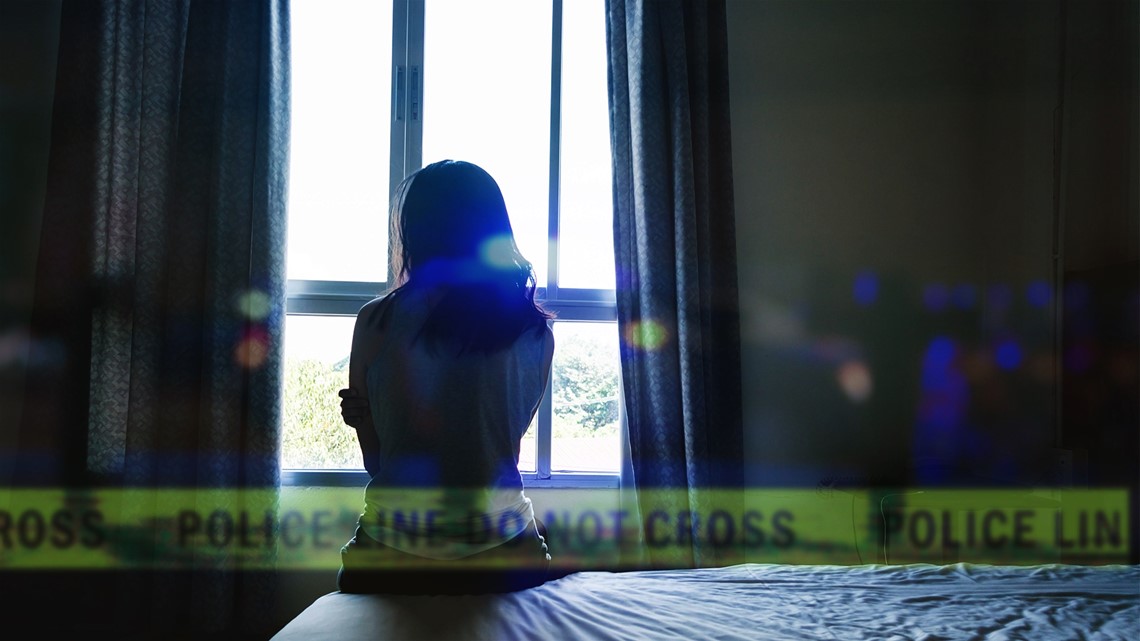Florida bill aims to close loophole in fight against human trafficking

Advocates and lawmakers found some hotels continued to fall out of compliance without consequences.
TAMPA, Fla. — Preventing human trafficking has been a major priority in the Sunshine State over the last several years.
From the attorney general to local law enforcement agencies, crackdowns, awareness campaigns and help for survivors have been key talking points.
For Savannah Parvu, it's more than that. It was her life for at least a decade.
Parvu said she was trafficked in Central Florida hotel rooms for more than a decade starting at age 11. Her mother and her mother's drug dealer were her traffickers. Men would come and go from a hotel room she was forced to stay in.
About five years ago, Parvu teamed up with some of the most powerful people in Florida to help get a law passed in 2019 requiring hotel staff to undergo training to better spot human trafficking, report it and potentially save people from abuse.
“The reason why the hotel legislation was so important to me back then and still is today is because I was trafficked out of hotels in Central Florida beginning at the age of 11 and the staff knew what was happening and assisted my trafficker and I feel like if somebody had stepped in then, I wouldn't have been trafficked as long as I was,” Parvu said.
Now, four years since the law passed, Parvu and others are looking to close a legal loophole that has allowed hotels and other establishments to avoid paying fines for being out of compliance.
SB 692 aims to ensure repeat offenders who fail to comply with Florida law pay fines on the second offense, which go directly to the state's direct support organization set up to help survivors.
Currently, businesses that violate the 2019 law are provided with education and given 90 days to get in compliance or face fines.
However, Parvu says some establishments are fixing the issues within 90 days and then falling back out of compliance without ever paying fines or facing consequences for being repeat offenders. Instead, they just repeat the cycle of going in and out of compliance based on when the state catches them.
“The hotel I was trafficked out of when I was eleven years old is on the list for being non-compliant at least five times,” Parvu said.
The new law would give hotels one chance to make it right. On the second offense, they'll be forced to pay.
If you suspect someone is a victim of human trafficking, call the National Human Trafficking Hotline: 1-888-373-7888.
This “Eyes on Trafficking” story is reprinted from its original online location.
 ABOUT PBJ LEARNING
ABOUT PBJ LEARNING
PBJ Learning is a leading provider of online human trafficking training, focusing on awareness and prevention education. Their interactive Human Trafficking Essentials online course is used worldwide to educate professionals and individuals how to recognize human trafficking and how to respond to potential victims. Learn on any web browser (even your mobile phone) at any time.
More stories like this can be found in your PBJ Learning Knowledge Vault.
EYES ON TRAFFICKING
This “Eyes on Trafficking” story is reprinted from its original online location.
ABOUT PBJ LEARNING
PBJ Learning is a leading provider of online human trafficking training, focusing on awareness and prevention education. Their interactive Human Trafficking Essentials online course is used worldwide to educate professionals and individuals how to recognize human trafficking and how to respond to potential victims. Learn on any web browser (even your mobile phone) at any time.
More stories like this can be found in your PBJ Learning Knowledge Vault.
